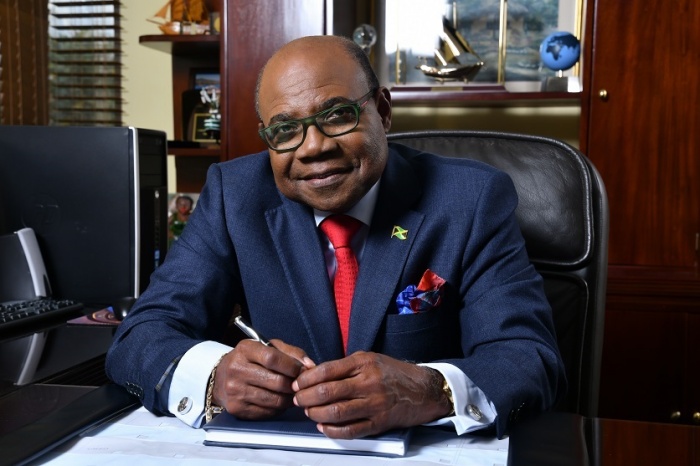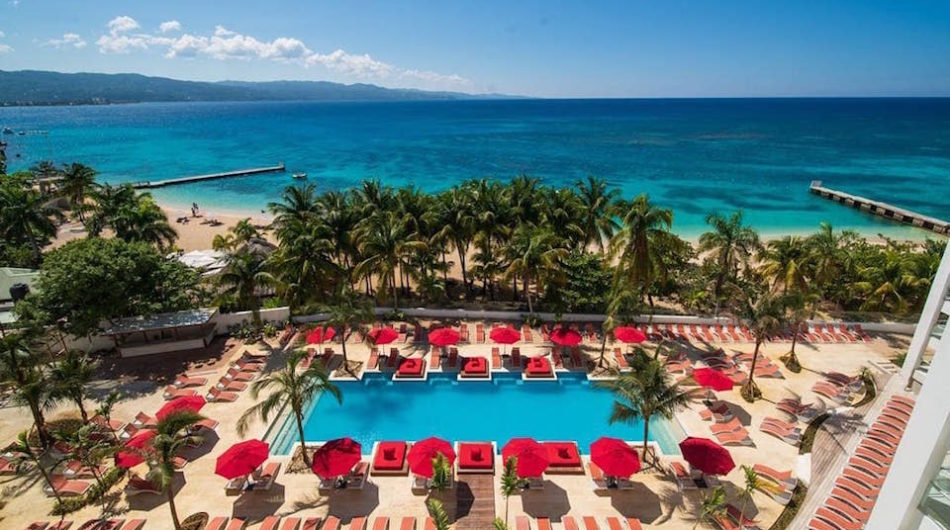
Breaking Travel News investigates: Equal vaccine distribution needed to restart tourism
Jamaica minister of tourism, Edmund Bartlett, has argued more should be done to distribute Covid-19 vaccines to those in need in order to rapidly restart the global tourism sector
As the world economy continues to reel from the devastating impact of the novel coronavirus pandemic, the focus in 2021 has largely shifted to ensuring the rapid global deployment of vaccination to the worst affected regions, which is seen as absolutely critical to winning the global fight against Covid-19, as well as to restore the global economy to some measure of normality in the quickest period possible.
To this end, it is a sign of great optimism that approximately 206 million doses of vaccines have already been administered across 92 countries globally, translating to roughly 6.53 million doses daily.
As more vaccine trials and testing are conducted daily, especially in the more advanced economies, more vaccines have been green-lighted by the World Health Organisation (WHO) for widespread use and deployment, after having demonstrated high efficiency during trials in achieving inoculation against Covid-19, usually after two or more doses.
The Pfizer-BioNTech vaccine has now been cleared for use across North America, Europe and the Middle East, and vaccination campaigns have begun in at least 92 countries.
ADVERTISEMENT
Covishield, the India-produced version of the AstraZeneca vaccine, has already distributed hundreds of thousands of vials to countries in the Caribbean and Latin America, including Dominica, Barbados, the Dominican Republic, Trinidad & Tobago, Argentina and Ecuador.
The Serum Institute of India, one of the largest vaccine makers in the world, has promised to produce 1.1 billion doses of the AstraZeneca vaccine.
The WHO recently confirmed that 36 countries in Latin America and the Caribbean will receive 35.3 million in the first stage of shipments.
China and Russia are also selling and distributing their Covid-19 vaccines in Latin America.
Concerns
While I welcome this strong global interest and enthusiasm around Covid-19 vaccination efforts, there are several concerns.
One, at the current rate of daily global vaccination, approximately 6.53 million doses, it will take roughly five years to cover 75 per cent of the population with a two-dose vaccine, according to Bloomberg research.
This current lethargic pace must dramatically hasten as global economic recovery efforts cannot wait five years, especially among the worst affected economies.
Second, there is great disparity in the global distribution of vaccines.
The picture that is emerging is that advanced countries appear to be largely rejecting a united approach in favour of reinforcing inequalities because of national citizenship.
The WHO has consequently warned that the world is on the brink of a “catastrophic moral failure” as poor countries risk falling behind on account of the fact that vaccine roll-outs in advanced economies are largely outpacing those in emerging and developing economies – even in countries with similar death rates.
Indeed, while the US and mostly other wealthy nations have begun to intensely vaccinate their citizens against Covid-19, developing countries, home to billions of people, had yet to even receive vaccine supplies.
In fact, nearly 130 countries had not yet delivered a single dose of vaccine to their combined population of 2.5 billion people, as of last week.
The current inequitable distribution of vaccines also means a greater risk of mutations that defy existing vaccines.

What are the implications of these developments for tourism-dependent economies, one might ask?
Well, the implications are very clear.
With more than 45 million confirmed cases and more than one million deaths, countries, and territories throughout the Americas, particularly the poorest among them, are experiencing an unprecedented health, economic and social crisis.
Tourism-dependent economies have lost 12 per cent of their GDP compared to global economic contraction of 4.4 per cent.
Tourism export revenues are down globally US$910 billion to 1.2 trillion in 2020.
Some 100-120 million jobs in travel and tourism were sacrificed in 2020.
Hotel occupancy across Caribbean destinations averaged between 10 to 30 per cent in 2020.
Tourist arrivals were down 40 to 60 per cent in 2020.
Many hotels and tourist attractions are at risk of falling into insolvency and receivership.
Growth
Tourism is the engine of growth in the Caribbean and its prolonged disruption spells catastrophe.
Our economies are badly bleeding and need to be thrown a lifeline.
The current situation facing these economies, as well as others across the world’s developing regions, can only be described as a humanitarian crisis.
The solution is clear: access to vaccination among these countries need to drastically accelerate. We cannot afford to politicise responses to the crisis at hand.
I am thus using this opportunity to prioritise tourism-dependent economies for vaccination.
It is imperative that the sector survives during and beyond the current crisis so that it can continue to fulfil its vital role as a significant catalyst of global economic recovery and growth.
Undoubtedly, the prolonged downturn and lethargic recovery of the sector will signal extreme economic hardship and likely destitution for billions of people globally.
We are at a defining moment in our global response to this pandemic and need to act decisively to fast-track recovery, especially in tourism- dependent economies in the Caribbean.
More Information
Jamaica is considered the World’s Leading Family Destination by voters at the World Travel Awards.
Find out more about visiting, when the time is right, on the official website.

